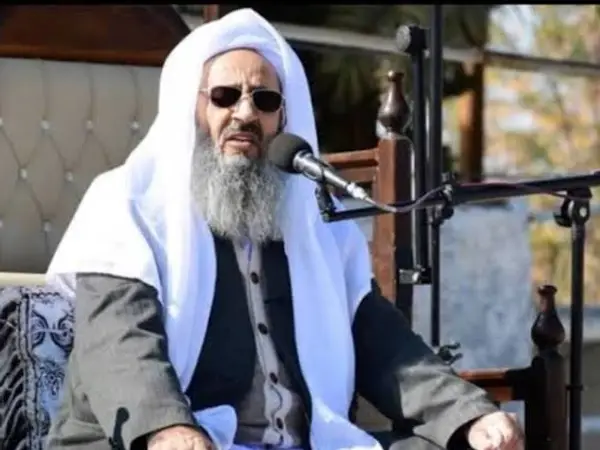Reactions are still pouring in to the proposal by Iran’s former premier-cum-opposition figure Mir-Hossein Mousavi for constitutional change through a referendum that could end in regime change.
In comments on Thursday, outspoken Sunni religious leader Mowlavi Abdolhamid praised Mousavi’s proposal and described it as the result of his understanding about the realities of society, demanding that other politicians see these realities.
“With his recent statement, Mousavi showed that he understood the realities of society. It's time for other politicians and ulema (religious scholars) to think about saving the country and see the facts,” he said. In November, the top Sunni cleric himself had called for an internationally monitored plebiscite, saying that by killing and repression the government cannot push back a nation.
Abdolhamid also criticized over a decade of house arrest imposed on Mousavi, his wife Zahra Rahnavard, and Former Parliament Speaker Mehdi Karroubi, calling it an example of the Islamic Republic’s injustice.
Mousavi and Karroubi both were presidential candidates in 2009, when a highly disputed vote count gave the presidency to Mahmoud Ahmadinejad triggering large popular protests that became known as the Green Movement. Eventually, both Mousavi and Karroubi were put under house arrest in 2011.
Referring to the regime’s violent crackdown on protesters, Mousavi said in his statement that such events have “demonstrated major truths for the nation.” The rulers of the Islamic Republic are not willing “to take the smallest step to meet the demands of the people.” Iran needs a“fundamental change” based on “Woman, Life, Freedom” and constitutional change, he said earlier in the month.
The leader of the Green Movement is known as a staunch reformist, or someone who believes the Islamic Republic can be reformed to become a more democratic and tolerant polity. But Mousavi’s statement rejected reform as a viable alternative, urging fundamental change, a new constitution and a constitutional assembly. Although he did not openly call for regime change, but his demands, if implemented, could lead to a new and democratic political system.
Mousavi in his statement implicitly repeated what exiled Prince Reza Pahlavi has been saying for years, and other opposition activists have echoed in the past five months – transition from the Islamic Republic.
Abdolhamid who has become an outspoken critic of the regime, has stopped short of calling for a new system of government, but endorsing Mousavi’s statement clearly aligns him with political forces that believe the people should be given a chance to decide what kind of government they want.
The 2009 Green Movement leader’s rejection of the reform option in the Islamic Republic has been met with admiration and antipathy alike. Some reformists, including seven prominent political prisoners and over a dozen figures of the ‘religious intellectual movement’, and its mentor Abdolkarim Soroush, have welcomed his proposal, others have strongly rejected it. The political prisoners, including leading reformist politician, Mostafa Tajzadeh and the daughter of Iran former president Akbar Hashemi Rafsanjani, Faezeh Hashemi, who are behind bars, announced that "they will do their best to advance this proposal and a peaceful and non-violent transition to a completely democratic and developed Iranian structure."
Mousavi’s volte-face can be seen as a milestone in the reformist camp as another bigwig of the movement former president Mohammad Khatami also believes reformism in Iran has reached a deadlock. Mohammad Javad Haqshenas, a prominent reformist figure, said earlier this week that Khatami's statement, which was issued on the 44th anniversary of the 1979 Islamic revolution, should be construed as a premonition for the regime that the Islamic Republic cannot be reformed.
February 11, 2023, marks the forty-fourth anniversary of the establishment of the Islamic Republic of Iran, and many people on social media believe that it is the last time the regime is celebrating the event.
